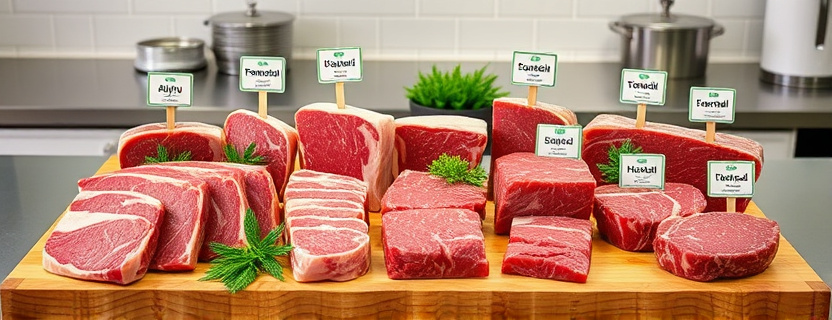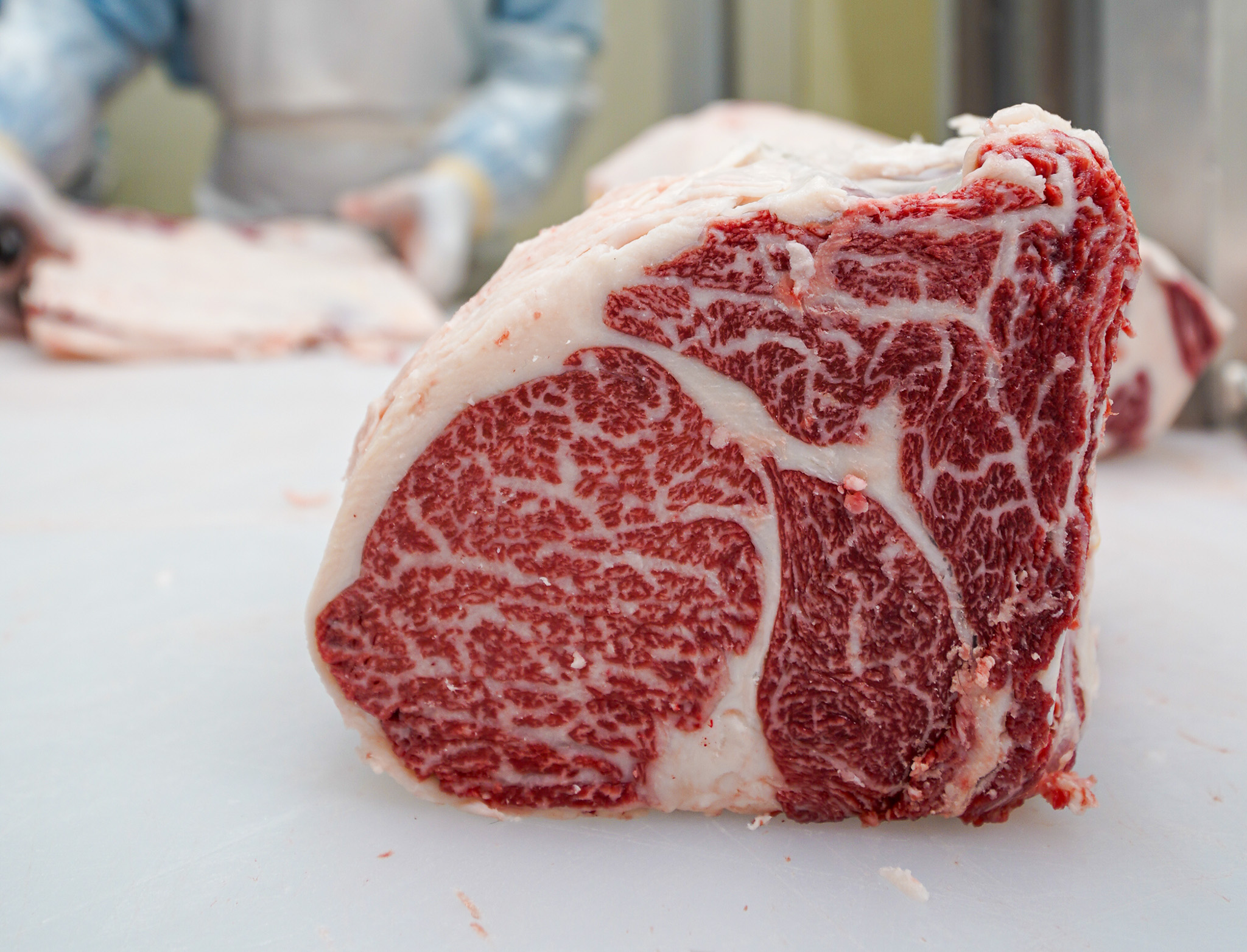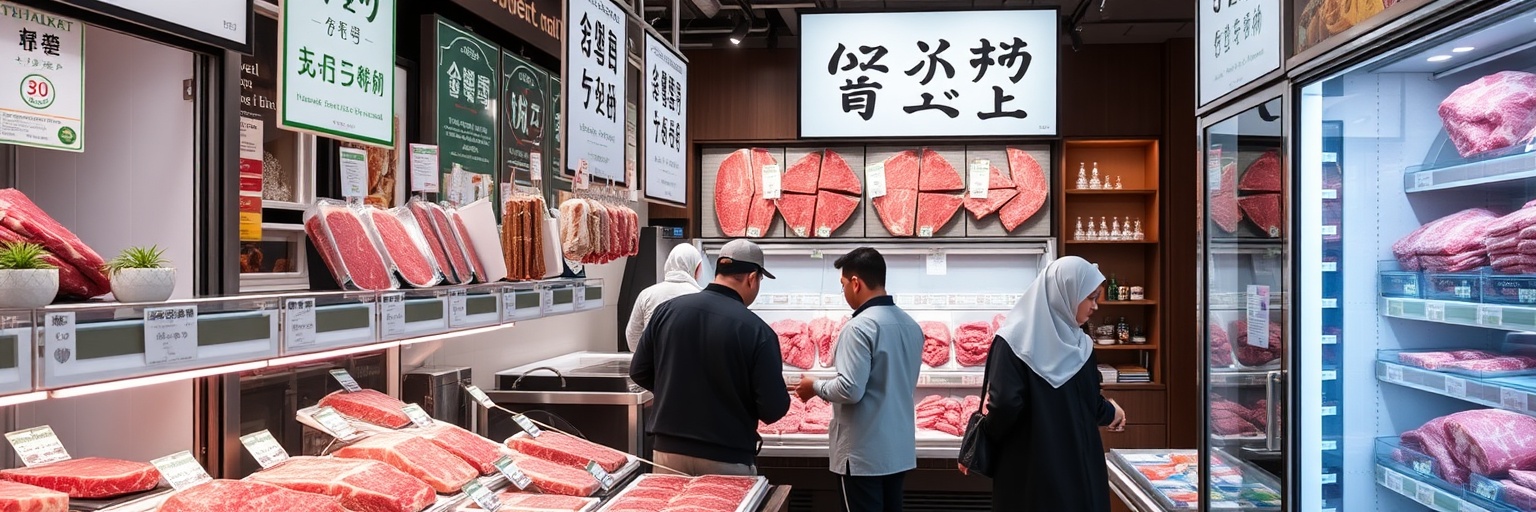Complete Guide to Halal Beef Available in Japan: Types, Sources, and Selection Tips
For Muslims living in Japan and those seeking halal food, finding reliable halal beef is an important challenge. In recent years, with the growing demand for halal food in Japan, halal-certified beef has become available at many stores and online retailers.
This article provides comprehensive practical information about the types of halal beef available in Japan, reliable sources, and selection tips.

Types of Halal Beef Available in Japan
Halal beef available in Japan can be broadly categorized into four types. Each has different characteristics and price ranges, so it's important to choose according to your intended use.
1. Premium Halal Wagyu (Kobe Beef, Matsusaka Beef, etc.)
Characteristics: Halal versions of Japan's finest brand beef. Includes Kobe beef, Matsusaka beef, and Yonezawa beef that meet strict halal standards.
Price Range: ¥3,000-8,000 per 100g (varies by cut)
Recommended Use: Special occasions, business entertainment, gifts
Main Retailers: High-end department stores, specialty shops, select premium halal shops
2. Domestic Halal Kuroge Wagyu
Characteristics: High-quality beef from domestic Kuroge Wagyu processed according to halal standards, though not branded beef. Excellent cost-performance ratio.
Price Range: ¥800-2,500 per 100g
Recommended Use: Weekend family meals, guest entertainment
Main Retailers: Halal specialty stores, online shops, select supermarkets
3. Domestic Halal Crossbred Beef
Characteristics: Beef from crossbred cattle (wagyu crossed with other breeds). Has moderate marbling and is ideal for everyday use.
Price Range: ¥400-800 per 100g
Recommended Use: Daily meals, yakiniku, sukiyaki
Main Retailers: Halal specialty stores, online shops
4. Imported Halal Beef
Characteristics: Halal-certified beef imported from Australia, New Zealand, USA, and other countries. Attractive for its reasonable price.
Price Range: ¥200-600 per 100g
Recommended Use: Daily meals, large-volume cooking, commercial use
Main Retailers: Halal specialty stores, wholesale supermarkets, online shops
Complete Guide to Reliable Sources
When purchasing halal beef, it's important to choose retailers with reliable certification. Here are the main sources in Japan.
Physical Store Purchases
Major Stores in Tokyo Area
- •Shin-Okubo Area Halal Shops: Concentration of Korean and Islamic food stores. Wide variety of halal beef available
- •Ameyoko Area: Stores dealing with imported foods where reasonably priced halal beef can be found
- •High-end Department Stores (Isetan, Mitsukoshi, etc.): Special sections handling premium halal wagyu
- •Nishi-Kasai & Kinshicho Areas: Halal specialty stores serving Indian and Pakistani communities
Major Stores in Kansai Area
- •Kobe Nankinmachi Area: Specialty stores in the home of Kobe beef handling halal Kobe beef
- •Osaka City Halal Markets: Specialty stores scattered throughout Tsuruhashi and Tennoji areas
- •Kyoto University Areas: Halal food stores for international students where beef is also available
Online Shop Purchases
Recently, reliable halal-certified online shops have increased, making it possible to purchase high-quality halal beef from anywhere in Japan.
Benefits of Online Purchasing
- ✓24/7 Ordering: Order at your convenience even with a busy schedule
- ✓Wide Selection: Access to special cuts not found in physical stores
- ✓Detailed Product Information: Clear information about certification bodies, origin, and breeding methods
- ✓Frozen Delivery: Fresh products delivered nationwide
How to Choose Halal Beef Without Mistakes
When selecting halal beef, it's important to consider not only religious compliance but also quality and intended use. Use the following points as a reference to choose the best product.
Verification of Certification Bodies is Most Important
When purchasing halal beef, the most important factor is whether it's certified by a reliable certification body. The main trusted certification bodies in Japan are:
- •Japan Islamic Cultural Center: Japan's oldest halal certification body
- •Japan Halal Association: Adopts internationally recognized certification standards
- •Malaysia JAKIM Certification: International certification widely trusted in Southeast Asia
- •Other International Certification Bodies: Official certifications from Australia, New Zealand, etc.
Selection Guide by Purpose
For Special Occasions, Business Entertainment, or Gifts
Recommended: Halal Kobe Beef (Sirloin, Filet)
Reason: The highest quality and taste can convey your appreciation to the recipient
Note: Often requires advance reservation and comes at a premium price
For Weekend Family Meals
Recommended: Domestic Halal Kuroge Wagyu (Ribeye, Chuck Roll)
Reason: Good balance of quality and price, perfect for sukiyaki and yakiniku
Note: Calculate the required amount based on the number of people
For Daily Meals or Budget-Conscious Purchases
Recommended: Imported Halal Beef (Shoulder, Round)
Reason: Excellent cost-performance, suitable for curry and stewed dishes
Note: Many are frozen products, so pay attention to thawing methods and expiration dates
Storage Methods and Cooking Tips for Halal Beef
Once you've purchased quality halal beef, proper storage and cooking methods will maximize its deliciousness.
Basic Storage Methods
- •Refrigerated Storage: Use within 2-3 days of purchase. Store at 0-4°C, separated from other foods
- •Frozen Storage: Divide into portions and vacuum seal or wrap tightly. Can be stored for 1-3 months at -18°C or below
- •Thawing Method: Slow thawing in refrigerator (6-12 hours). For quick thawing, use running water
Cooking Tips
- •Bring to Room Temperature: Leave at room temperature for 30 minutes before cooking to ensure even temperature
- •Proper Heat Control: Sear at high heat, then cook slowly over medium heat
- •Rest the Meat: Let rest for 5-10 minutes after cooking to allow juices to settle and improve flavor
Price Comparison and Cost-Performance Analysis
Halal beef is generally more expensive than regular beef, but here's why and how to purchase it cost-effectively.
Reasons for Higher Prices
- 1.Special Processing: Special slaughter and processing methods required for halal certification
- 2.Certification Costs: Audit and certification fees from certification bodies
- 3.Limited Supply: High rarity value due to limited production
- 4.Distribution Costs: Specialized distribution routes and refrigeration/freezing management costs
Ways to Purchase Cost-Effectively
- •Bulk Purchasing: Buy freezable products in large quantities to reduce unit price
- •Online Sales: Take advantage of regular sales and campaigns
- •Cut Selection: Choose appropriate price range cuts based on intended use
- •Subscription Services: Use shops offering subscription discounts
Future Outlook for Japan's Halal Beef Market
Japan's halal beef market is growing rapidly, with further development expected.
Factors Driving Market Expansion
The increasing Muslim population in Japan, recovery of inbound tourism, and growing health and safety consciousness among Japanese consumers are driving annual increases in halal food demand. With the 2025 Osaka Expo approaching, further market expansion is anticipated.
Quality Improvement Through Technological Innovation
The introduction of IoT-based traceability systems is enabling more transparent management from halal beef production to consumption. This will allow consumers to purchase halal beef with greater confidence.

Summary: For Optimal Halal Beef Selection
The options for halal beef in Japan have expanded significantly in recent years. From premium halal Kobe beef to imported halal beef suitable for daily use, products are available to meet various needs.
The key is to verify certification from reliable certification bodies and choose the optimal product based on your intended use and budget.
Physical store purchases offer the reassurance of directly examining products, while online shops provide the benefits of wide selection and convenience. Regardless of the purchasing method, by verifying certification and following proper storage and cooking methods, you can enjoy delicious and safe halal beef.
Use the information in this article as a reference to find the halal beef that best suits your lifestyle and values. High-quality halal beef will surely enrich your dining table.

